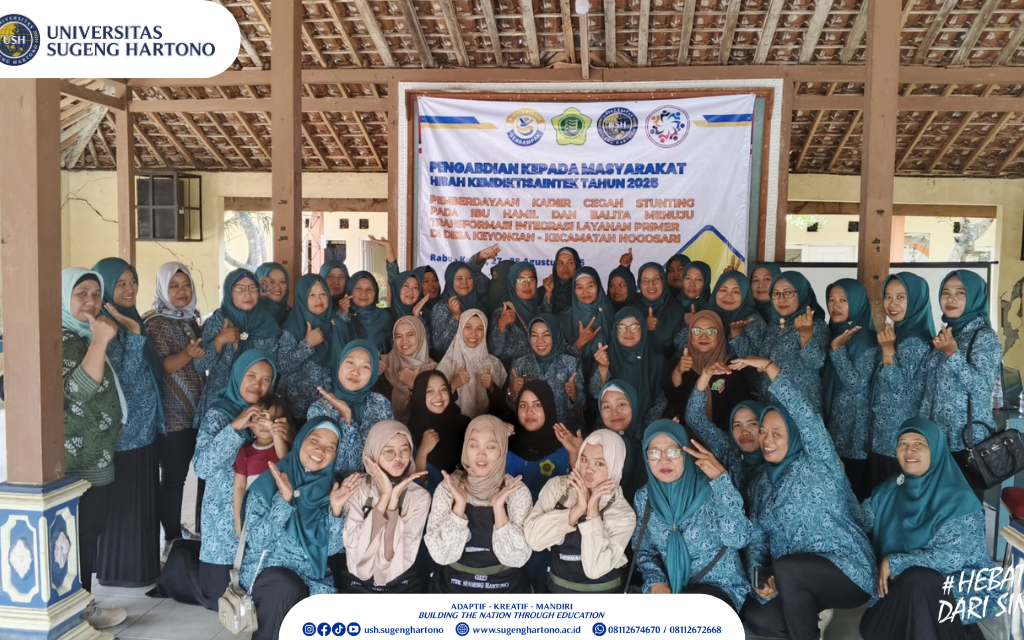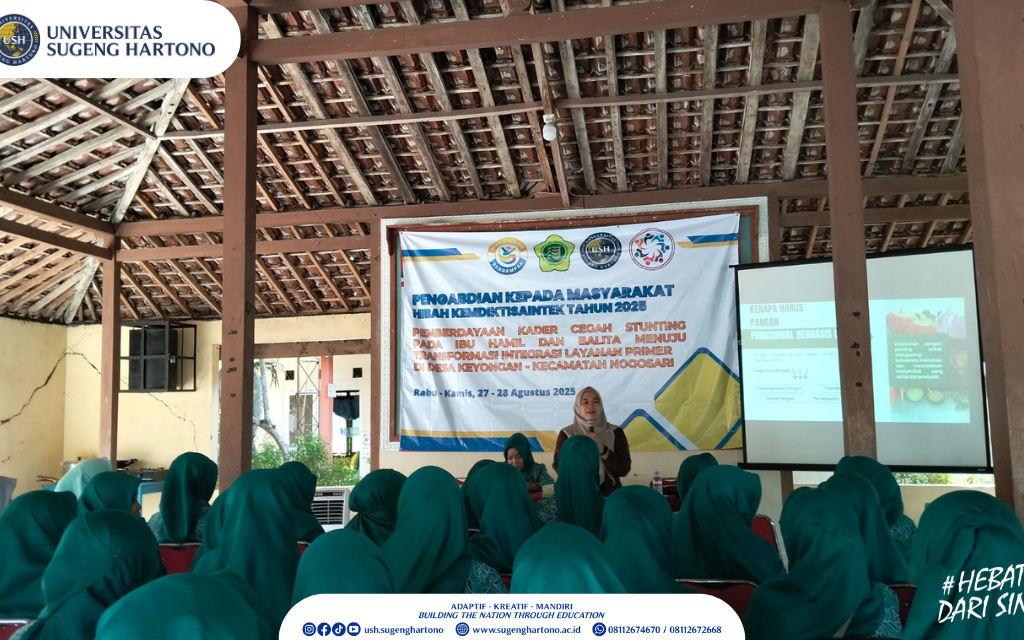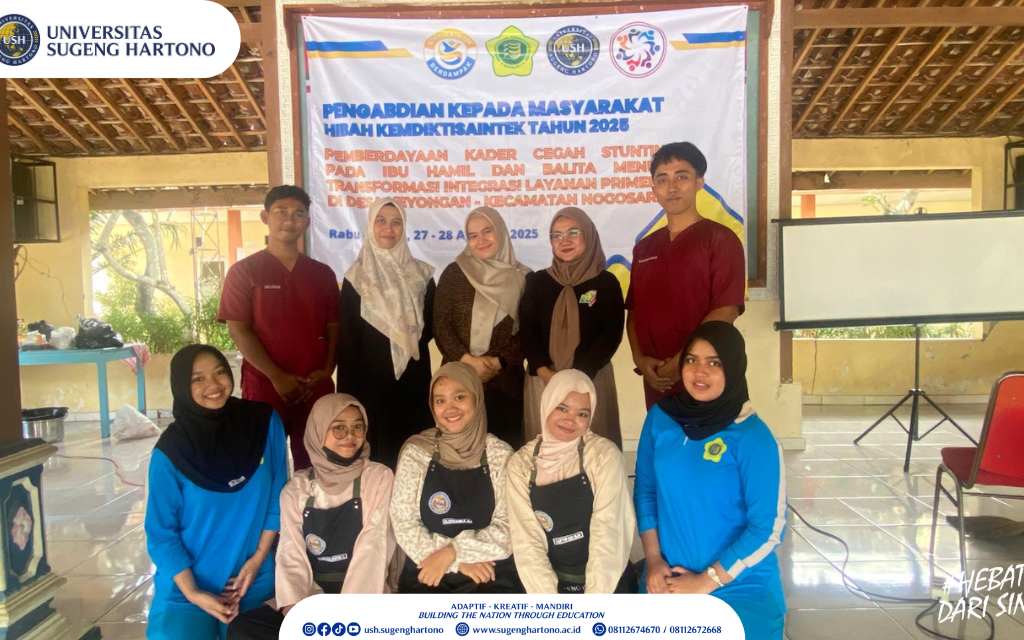
(August 27–28, 2025) Keyongan, Boyolali – A team of lecturers from Universitas Sugeng Hartono in collaboration with STIKES Estu Utomo conducted a community service program focusing on strengthening the capacity of Posyandu cadres. The program carried the theme ‘Empowering Cadres to Prevent Stunting in Pregnant Women and Toddlers Towards the Transformation of Integrated Primary Health Services in Keyongan Village, Nogosari District.’ The cadres were provided with knowledge on the First 1,000 Days of Life (HPK), followed by training on business planning and local food processing using pumpkin and chicken meat as the main ingredients.

The activity, held at the Keyongan Village Hall, was attended by dozens of Posyandu cadres, members of the Family Welfare Movement (PKK), and village officials. Prior to the training, participants were given a pre-test and post-test to assess their level of knowledge on the topics delivered. The cadres received a threefold training: first, education on the First 1,000 Days of Life (HPK); second, guidance on preparing a simple business plan for Posyandu-based entrepreneurial development; and third, hands-on practice in processing nutritious local food to support stunting prevention efforts.

The head of the community service team, Luluk Khusnul Dwihestie, S.ST., M.Kes., explained that stunting cannot be addressed solely through medical interventions but also requires community empowerment. ‘Posyandu cadres play a crucial role as the front line of nutrition education,’ she emphasized. Meanwhile, Nutrition Science lecturer from Universitas Sugeng Hartono, Himmatunnisak Mahmudah, M.Gz., added that with the knowledge of business planning and skills in processing local food, cadres are not only able to contribute to stunting prevention but also develop productive ventures that support family income.
During the training, participants practiced several local food innovations designed to support balanced nutrition. These included pumpkin dim sum, a snack rich in protein and vitamin A; chicken and pumpkin nuggets, which serve as a valuable source of animal protein; and chicken sempol, a nutritious snack also providing animal protein.
In addition, the cadres also learned how to develop business planning, starting from capital analysis, marketing strategies, to basic financial management. This material is expected to encourage Posyandu cadres to become agents of change as well as sustainable micro-entrepreneurs. One of the cadres, Mrs. Winarti, expressed her appreciation: ‘We feel more confident in developing local food products. Besides supporting children’s health, the products can also be sold to increase family income,’ she said.
The program concluded with a joint commitment between the University, the Village Government, and Posyandu cadres to continue the mentoring activities. This initiative was funded by the Ministry of Education, Culture, Research, and Technology in 2025 and implemented in partnership with the Head of Keyongan Village and the village midwife. It is expected that this effort can serve as a model of effective community empowerment in reducing stunting rates while simultaneously improving family welfare.
